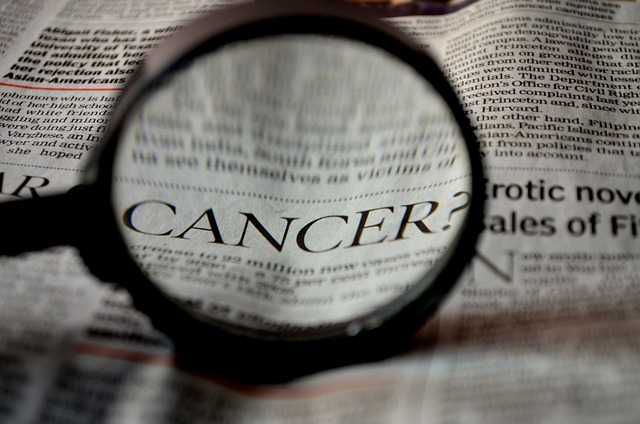Former opera singer Kathleen Watt discusses an unexpected diagnosis and her journey back to health.

Q: When was your first inkling something required further examination?
A: My tumor was discovered during a routine dental exam, as is often the case with serious head and neck conditions.
In an idle moment during a laid-back ski vacation one January, I offhandedly asked my partner Evie to help me confirm a funny protrusion in the gumline over my back teeth. Hardly noticeable—who knows how long it had been there? It didn’t hurt. Probably nothing. We agreed I should have my dentist take a look at it in my February appointment, and we headed for the slopes. It was nothing.
So I introduced the bump to my dentist. He paused, vaguely suggested some endodontic ailment, and straightaway sent me to his colleague, an endodontist, to be evaluated for, perhaps, a root canal. After a conspicuously brief exploration, the endodontist concurred with my dentist and proposed a tentative treatment plan—but first, he wanted corroboration from his surgical associate. Two weeks later, the oral surgeon took a look, summarily pulled the tooth, and immediately ordered a biopsy. By March, I had my diagnosis: “well-differentiated sarcoma…unusual….possible extension of a neoplasm into the gingival tissue….” I was in surgery by April. As I remember it, I’d been a hair’s breadth from skipping that dentist appointment altogether.
Q: Was it customary in your previous dental experience to have head and neck examinations and an oral cancer screening as part of your regular care?
A: In retrospect, I think pre-emptive oral cancer screening must have been part of my dentist’s regular process because his response to my anomaly was immediate and complete with follow-through. However, I would not have recognized it as such at the time because nothing like this had ever happened to me or anyone I knew. Interestingly, I was approached years later by that endodontist for permission to reference my case in a paper underlining the importance of teaching dental students to expect the unexpected, inasmuch as many catastrophic illnesses present initially in the mouth.
Q: How did the diagnosis impact you personally and professionally?
A: As an opera singer, the distinction between the professional and the personal is exceedingly fine, because the body itself is the instrument of the profession. The diagnosis of craniofacial OS was cataclysmic for me, as it put my career plans and my very instrument at risk, never mind my life. It changed the trajectory of my life forever, though we could not know that at the time. It was existential for me because I was unable to contemplate not existing, whereas others were forced to contemplate existence without me, so I was determined to recover, to believe in recovery, and to focus on it. But with so many crucial medical concerns, reasonable apprehensions, and our preparations for surgery and recovery, a generalized anxiety engulfed everyone I knew and terrified my partner.
Still, I am reluctant to remember the experience as a “catastrophe” because it was unexpectedly rich in so many ways. And it was life. It was my life.
Q: What was the most challenging part of your treatment and recovery?
A: The surgeries certainly presented challenges, though more for my loved ones than for me. The contemplation of the surgery coming up was more difficult for me in its otherworldly audacity. A weeklong induced coma produced its own array of unimagined consequences. Three-and-a-half months of chemotherapy was grueling and all-consuming. The intersection of chemo mucositis and an intraoral appliance of acrylic and titanium was a special kind of torture.
In the emergent crisis, the greatest challenge was just to accept that it was actually happening and that every necessary thing was also going to happen. It required a concentrated effort to relinquish the illusion that it could be controlled, hurried, or avoided. Then, because my facial reconstruction stretched over months and then years, hobbled by resistant infections, complications, and setbacks, we were overcome by a stultifying limbo. The limbo was destructive. It corroded the very buttresses—psychological and emotional—that had helped us bear more active crises, which we had come to rely on. That’s when things really began to fall apart.
Q: If you were standing in front of a dental audience, what would you like them to know?
A: From a patient’s point of view, I admit I appreciate that light patter dental professionals seem to wield so well when they’re up to their elbows in your mouth. But nowadays, I’m hyper-aware of, and grateful for, everything else going on behind the patter.
For less experienced professionals, I would echo my endodontist’s admonition: Expect the unexpected. Because with head and neck disease, the stakes are high, and time is of the essence. It does no harm to anticipate the worst, but speculating, hoping, and waiting can be deadly. And if you aren’t sure, pass your patient off to someone senior. There’s nobility in that, too.
Q: Is there something, such as a quote or statement, that repeatedly brought you strength and/or comfort throughout your journey?
A: I know something biblical or otherwise inspirational would be good here. And many such things did come to mind. But mostly, I remember thinking, “Just hang on. It’s not gonna kill ya.”
ABOUT KATHLEEN WATT
Ms. Watt attended the Rhode Island School of Design, Brown University, and Brigham Young University (earning a double BFA in art and music), along with postgraduate studies in opera performance at Boston University. She is the author of Rearranged: An Opera Singer’s Facial Cancer and Life Transposed. Learn more at kathleenwatt.com.











